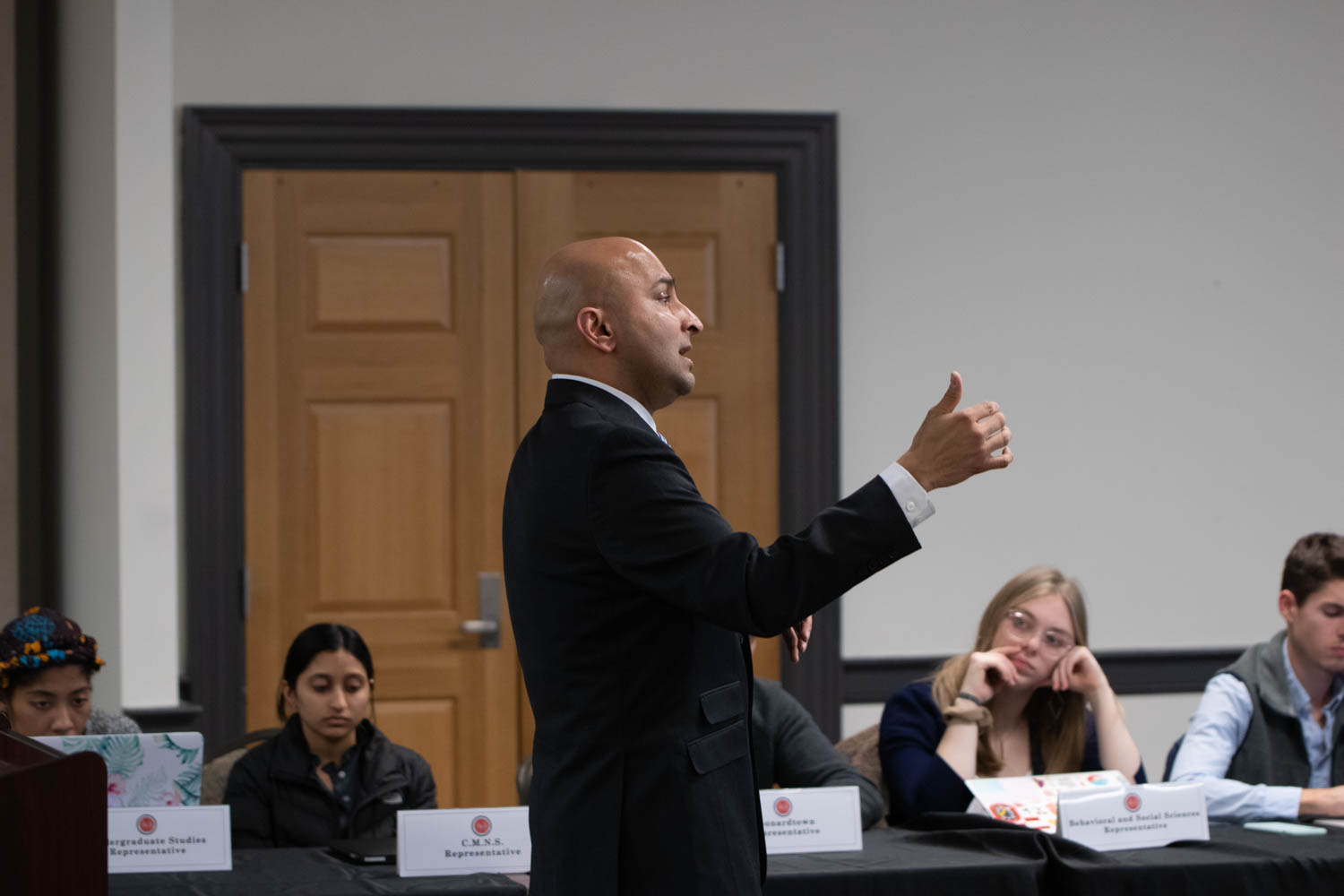University of Maryland faculty spoke to the SGA last week about forming a “wellness group” to bring together units focused on student health.
Student affairs assistant vice president Warren Kelley told the Student Government Association that the group will be composed of the Counseling Center, University Health Center, the Office of Student Conduct and University Recreation and Wellness.
While these organizations — all of which fall under the student affairs division — already cooperate, this week is the first time they will all sit as a group to discuss student health resources on campus, Kelley said.
This is a restructuring of campus resources that can help achieve a more holistic approach to student health resources, Kelley said. The group will be geared toward improving emotional and medical health services for students.
This effort will include supporting healthy practices, maintaining quality primary care services and promoting the work of university advocacy groups such as CARE to Stop Violence, said Kelley.
Taylorann Vibert, a junior government and politics and history major at this university, praised the new group.
“It seems like a good idea to consolidate resources,” she said. “So it can take a more directive and thoughtful approach to distributing resources on campus to students who might need them.”
[Read more: Two years after mental health campaign, student group says they’ve seen progress]
Chetan Joshi, who recently took the role of counseling center director and has a background in neuropharmacology, counseling and administration, has been working with Kelley to figure out best practices in mental health services.
“All [students] need is one person who can talk to them, and connect them to the right resources,” said Joshi, “I believe in bringing a culture of care to this community.”
Kelley is also looking to launch a new role, the Dean of Students, by the summer.
“It’s a big, you know, bureaucratic place and often [students] need help navigating it, so if we can provide a place to say look, if you’re not sure what to do or where to go, just contact us in the Dean of Students Office and we will help,” Kelley said.
The Dean of Students will serve as a member of the Student Affairs leadership team and provide oversight and coordination for the university’s Behavior Evaluation and Threat Assessment team, said Kelley. Foremost, he said, they will be an advocate for students.
In February 2018, a student group launched the campaign, “30 Days Too Late” which referenced long wait times students seeking mental health services experienced.
The group, called Scholars Promoting and Revitalizing Care, received a grant from the Do Good Institute last spring. It used this money to fund North Campus case manager Leslie Krafft to become an instructor through the Mental Health First Aid Maryland training program.
[Read more: After years of delays, South Campus Diner construction is set to finish over spring break]
The Student Government Association, the student affairs division, the Graduate Student Government, the Residence Hall Association and SPARC are working to extend the training program.
“There’s always a need for increased health, and there will always be an increased demand and not enough supply. So, I think going forward, we have to figure out how to make our community that is more receptive to mental health needs, in its daily life, not just by increasing counselors at the Counseling Center,” said Kelly Sherman, SGA’s health and wellness director.
The Dean of Students will also work closely with the Office of Student Conduct to monitor the culture of the campus community and make sure that faculty are equipped to deal with difficulties in the classroom, Kelley said.
Kelley says they are writing up a description for the job.
“We want someone who cares deeply about students … who’s comfortable working with students,” he said. “Who’s comfortable in helping somebody during a personal crisis. Somebody who brings a kind of lens of passion for student success.”



